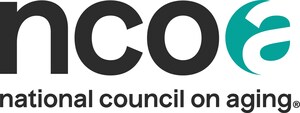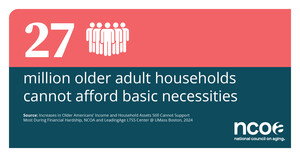Events planned nationwide to help older adults reduce their risk of falling
WASHINGTON, Sept. 13, 2011 /PRNewswire-USNewswire/ -- Sept. 23 is the first day of Fall, and it's also a day when passionate people across the country will observe the 4th annual National Falls Prevention Awareness Day, through educational presentations, risk screening activities, and other outreach strategies, to get the message out that most falls are preventable for older adults.
(Logo: http://photos.prnewswire.com/prnh/20110908/DC64869LOGO )
(Logo: http://photos.prnewswire.com/prnh/20100615/NCOALOGO )
Forty-three states will participate in Falls Prevention Awareness Day this year, joining 70 national organizations, professional associations, and federal agencies that comprise the Falls Free© Initiative to raise awareness of this major public health issue that affects one out of every three seniors every year. But more importantly, they are working collaboratively to bring attention to common sense strategies to reduce the risk of falling, such as:
- Engage in a physical activity regimen that includes balance, strength training, and flexibility components.
- Consult with a health professional about getting a falls risk assessment.
- Have their medications reviewed periodically.
- Get their eyes checked annually.
- Make sure the home environment is safe and supportive.
Falls are the leading cause of fatal injuries for Americans aged 65 and older. More than 18,000 older Americans die every year because of a fall, and the rate has risen dramatically over the last 10 years. The U.S. spends an estimated $28.2 billion(1) annually on medical care related to falls; in 2008, falls were the leading cause of non-fatal injuries treated in emergency departments, with over 2.2 million older adults treated for fall-related injuries.
The federal government's newly released National Prevention Strategy recommended a guideline to provide individuals and families with the knowledge, skills, and tools to make safe choices that prevent violence and injuries, specifically citing fall prevention in older adults.
The Strategy lists numerous prevention techniques, including having seniors "engage in regular physical activities to increase strength and balance to help prevent falls." The full report is available at www.HealthCare.gov/center/councils/nphpphc.
"Although a number of federal agencies have been focusing on fall prevention, it's exciting to see it included in the National Prevention Strategy," said Lynn Beattie, vice president of Injury Prevention with the National Council on Aging (NCOA), leader of the Falls Free© Initiative. "With a renewed national focus on prevention, an increasing awareness of the issue of older adult falls, and the growing availability of proven falls prevention programs and interventions, our hope is to greatly raise the awareness of the growing number of falls among older adults in this country."
For more than a decade, members of the Falls Free© Initiative have been working collaboratively to increase the availability of proven programs to help seniors prevent falls.
For additional information on Falls Prevention Awareness Day, including press-related materials, please visit http://www.healthyagingprograms.org/content.asp?sectionid=149.
About the Falls Free© Initiative
Led by the National Council on Aging, the Falls Free© Initiative includes more than 40 states and 70 national organizations, professional associations, and federal agencies who are working collaboratively to bring education, awareness, and evidence-based solutions to local communities. Falls Free© seeks to provide hundreds of thousands of older Americans with the resources and education needed to reduce their risk of injury.
About NCOA
The National Council on Aging is a nonprofit service and advocacy organization headquartered in Washington, DC. NCOA's mission is to improve the lives of millions of older adults, especially those who are vulnerable and disadvantaged. NCOA is a national voice for older Americans and the community organizations that serve them. It brings together nonprofit organizations, businesses, and government to develop creative solutions that improve the lives of all older adults. NCOA works with thousands of organizations across the country to help seniors find jobs and benefits, improve their health, live independently, and remain active in their communities.
www.NCOA.org |www.facebook.com/NCOAging | www.twitter.com/NCOAging
(1) (Costs adjusted using the 2010 Consumer Price Index.)
SOURCE National Council on Aging
WANT YOUR COMPANY'S NEWS FEATURED ON PRNEWSWIRE.COM?
Newsrooms &
Influencers
Digital Media
Outlets
Journalists
Opted In






Share this article